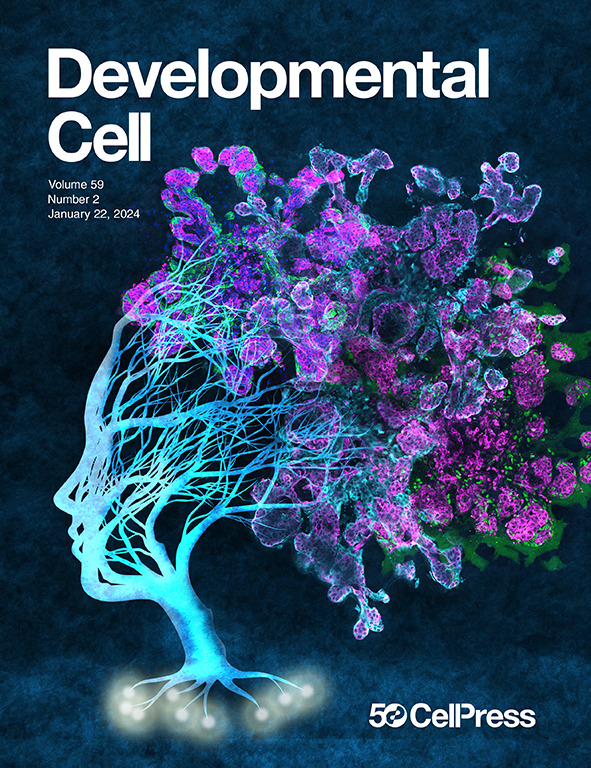mTORC1 shutdown unleashes TFEB to drive triple-negative breast cancer invasion
IF 10.7
1区 生物学
Q1 CELL BIOLOGY
引用次数: 0
Abstract
The PI3K/AKT/mTOR pathway is considered a key therapeutic target in triple-negative breast cancer (TNBC). In this issue of Developmental Cell, Remy et al. challenge this idea by demonstrating that mTORC1 inhibition activates TFEB, promoting MT1-MMP exocytosis, ECM degradation, and increased cell invasion, especially when combined with chemotherapy.求助全文
约1分钟内获得全文
求助全文
来源期刊

Developmental cell
生物-发育生物学
CiteScore
18.90
自引率
1.70%
发文量
203
审稿时长
3-6 weeks
期刊介绍:
Developmental Cell, established in 2001, is a comprehensive journal that explores a wide range of topics in cell and developmental biology. Our publication encompasses work across various disciplines within biology, with a particular emphasis on investigating the intersections between cell biology, developmental biology, and other related fields. Our primary objective is to present research conducted through a cell biological perspective, addressing the essential mechanisms governing cell function, cellular interactions, and responses to the environment. Moreover, we focus on understanding the collective behavior of cells, culminating in the formation of tissues, organs, and whole organisms, while also investigating the consequences of any malfunctions in these intricate processes.
 求助内容:
求助内容: 应助结果提醒方式:
应助结果提醒方式:


